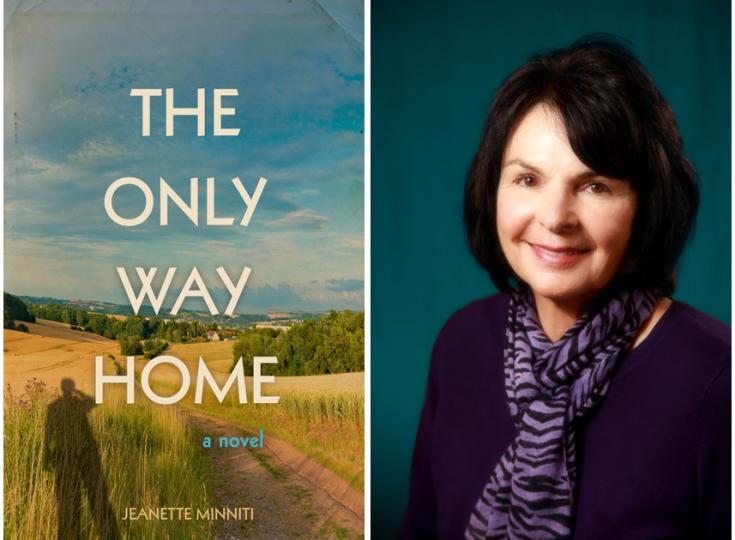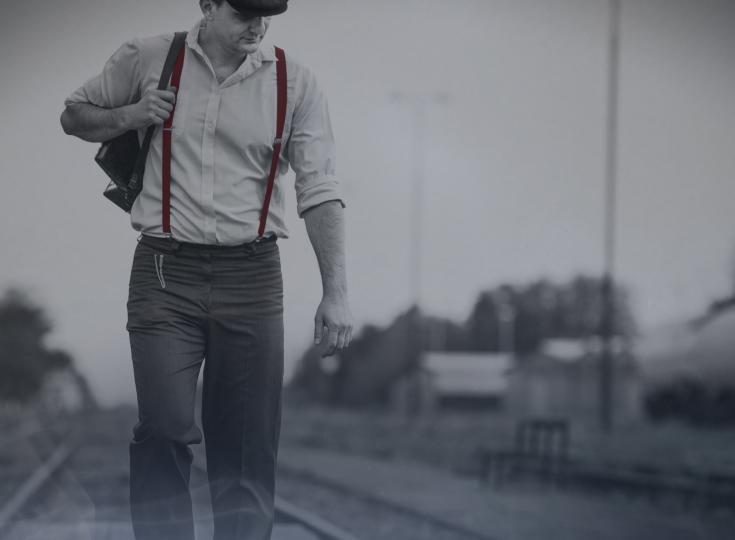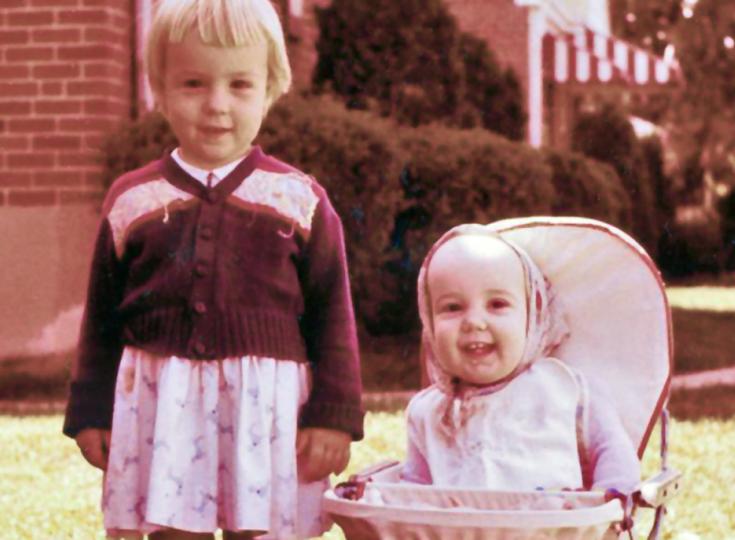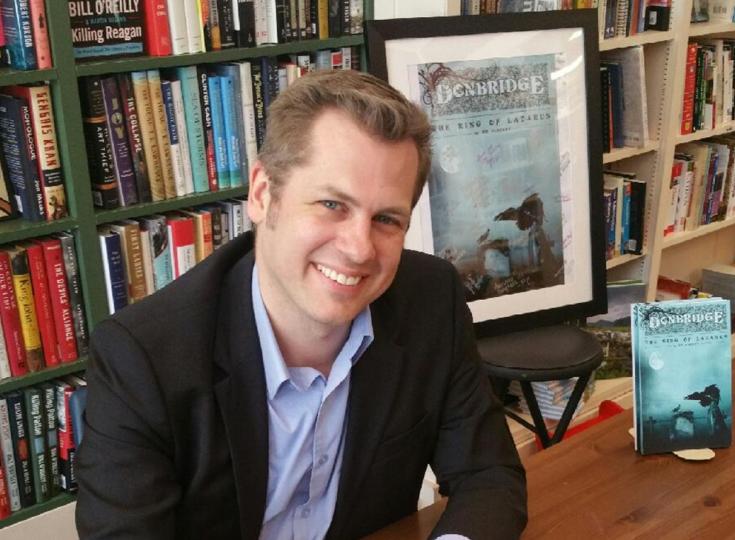Jeanette Minniti - Interesting and Historical Look Back at Depression Era Life.

Jeanette Minniti is an author living in Colorado. She received an MA in Journalism with an emphasis in Public Relations from the University of Colorado, Boulder. She and her husband enjoy all that Colorado offers, including hiking and biking. As our Author of the Day, she tells us all about her book, The Only Way Home.
Please give us a short introduction to The Only Way Home
It is 1933 inside a sweltering courtroom in Macon, Georgia. Fifteen-year-old Robert sits on a bench awaiting sentencing after being picked up for vagrancy and spending a night in jail. He left his home in Illinois with a neighborhood friend to ride the rails and find work to help their families. Instead, the friend turned back, too afraid to face the perils ahead. But going back empty-handed isn't an option for Robert.
Set during the Great Depression, it is the story of a fatherless boy's determination to survive loss and hardship to help his family—and how fate and a violin touch the course of his life.
What inspired you to write this story? Was there anything in particular that made you want to tackle this?
The actual writing of this story began in one of my novel-writing classes. When my father was in his late eighties, I learned he left to ride the rails as many kids did during that era. He told me only one story about his experience, one that he said he never forgot. It is at the very end of the novel's first chapter.
I had already started researching the era, so the novel's first few chapters of The Only Way Home evolved in the class. However, what inspired me to continue to tackle the story was the professor's reaction to it and his encouragement to keep writing to the finish.
Why did you pick 1933 Macon, Georgia as the backdrop for your story?
The year 1933 was one of the worst years of the Great Depression. During my research, any of the towns or states mentioned in the novel would have provided a good backdrop, but Georgia caught my attention because of the peanut farm industry. Also, the use of chain gangs for free labor all over the state gave the main character something extra to worry about in the first chapter.
How much research did this book require from you to make the history part of it ring true?
My genre is historical fiction, so I did extensive research first. The process for the early 1930s era included reading non-fiction books and academic articles, watching videos, and reviewing historical photos, newspaper headlines, and maps. However, the research for a historical fiction novel goes on throughout each paragraph and chapter by checking the accuracy of the description of clothing, machinery, transportation modes, prices, speech phrases, essentially everything mentioned about the era.
What was the most interesting aspect of this research?
Researching the depression era tells many stories of the tragedies families endured through no fault of their own and the desperate actions taken to survive the peril by riding the rails across the country to find work. What became surprisingly apparent was seeing so starkly how history repeats itself, especially the harsh impact to families at no fault of their own when there is a severe downturn in our economy for whatever cause or reason.
Besides writing, what other secret skills do you have?
I have good organizational skills that are useful in volunteer work. Currently, I coordinate the Foreign Policy Association's Great Decisions discussion program for the American Association of University Women, Colorado Springs Chapter.
Tell us more about Robert? What makes him so special?
Robert leaves home driven by the desperate need to find work to help keep his family together. After the loss of his father just before the onset of the depression, his mother and five siblings are left vulnerable to the economy's downturn. What drives Robert was a recent visit by government officials to discuss having his younger siblings live with other families. Their needs were immediate, so it is in these turbulent times Robert tries to navigate his way across the country. His search for opportunity and his will to survive regardless of circumstances shows determination and courage throughout the novel.
Why did you decide to write the story from the perspective of a 15-year-old?
It was important to me to balance what I perceived through my research to be the actual perspective of the country during such a devastating time. So the story needed to be told from what Robert saw, what he witnessed, and how he experienced his world. I wanted readers to gain insight into the stark realities of this period and how they impacted families, along with the decisive role that compassion and generosity played by those who were even a little better off at the time.
Do any of your characters ever take off on their own tangent, refusing to do what you had planned for them?
I am a panster versus a plotter in style. Although I did some outlining and plotting before I set words on the page, I was amazed at how some characters just showed up, leaving me to figure out what role, if any, they would play as the story progressed. So I would say these characters lead the way to who they were and what role they would play.
Is there an underlying message you wish to relay about basic human nature through your characters?
Yes, there are casual perceptions and messages throughout the novel during Robert's search for opportunity. However, his day-to-day survival in these uncertain and dangerous times involves the most basic everyday needs. The devastation he saw and experienced provides a reservoir of insight into human nature's powerfulness. Likewise, the impact of simple acts of kindness such as a smile of acknowledgment, momentary perceived safety, or a hand reached out to help are enduring and long-lasting to someone in need.
What is an average writing day like for you?
It took me a while to figure out what writing habits work for me and what makes up a constructive effort to focus on a project. It took several months trying different writing spots, times of day, and finding the distractors in my writing life. It seemed to me there was something mystic or charming about an author writing at a cafe. That might be accurate, but it wasn't for me. There were so many significant distractors constantly. Times of day, I tried them all. Finally, I figured out I needed to have my "things to do for the day list" checked off as much as possible. That easily pushed me into writing in the afternoons and at home, where I have access to my files and research at hand. Once I sit down to dig in, I can focus on what I need to do.
What are you working on right now?
I have spent many hours researching women recruited for espionage assignments at the start-up of World War II. I find reading about it fascinating. Currently, I am completing a 17-segment World War II online class to solidify my research on the era and continue to research and plan toward another novel.
Where can readers discover more of your work and interact with you?
My website, www.JeanetteMinniti.com, provides background information about me and my novel, an excerpt from a chapter, where to buy, links to purchase, and how to contact me. I love to hear from readers!










